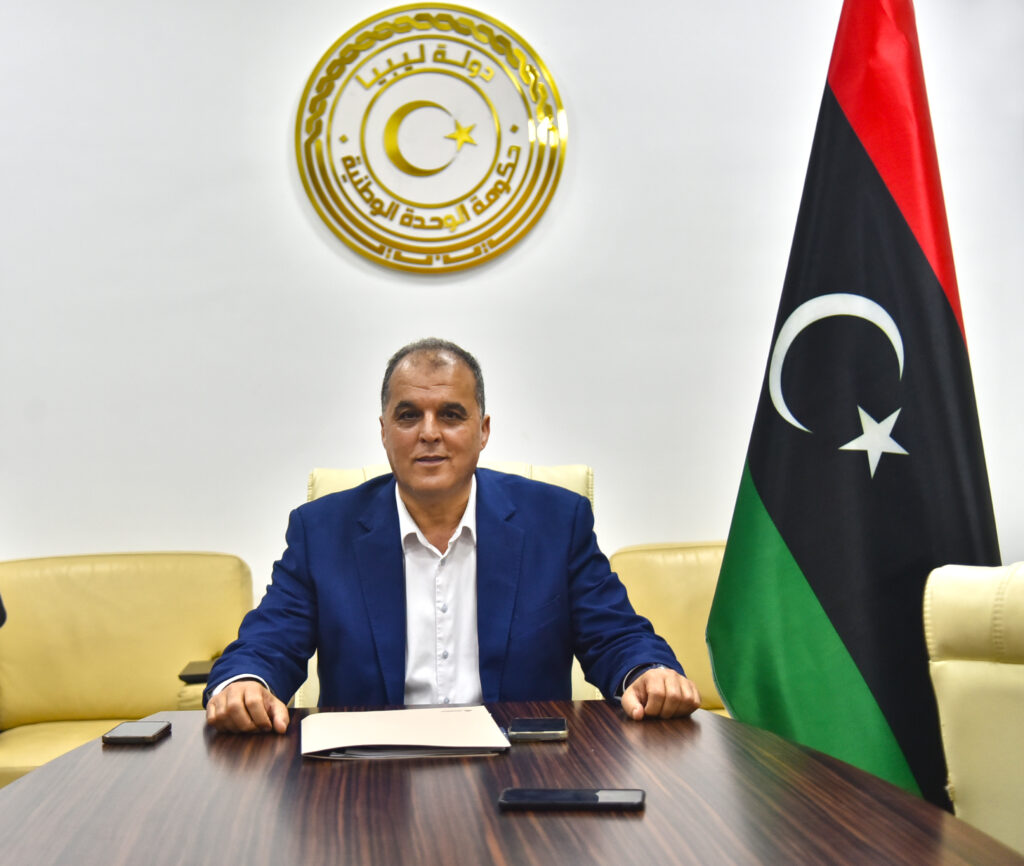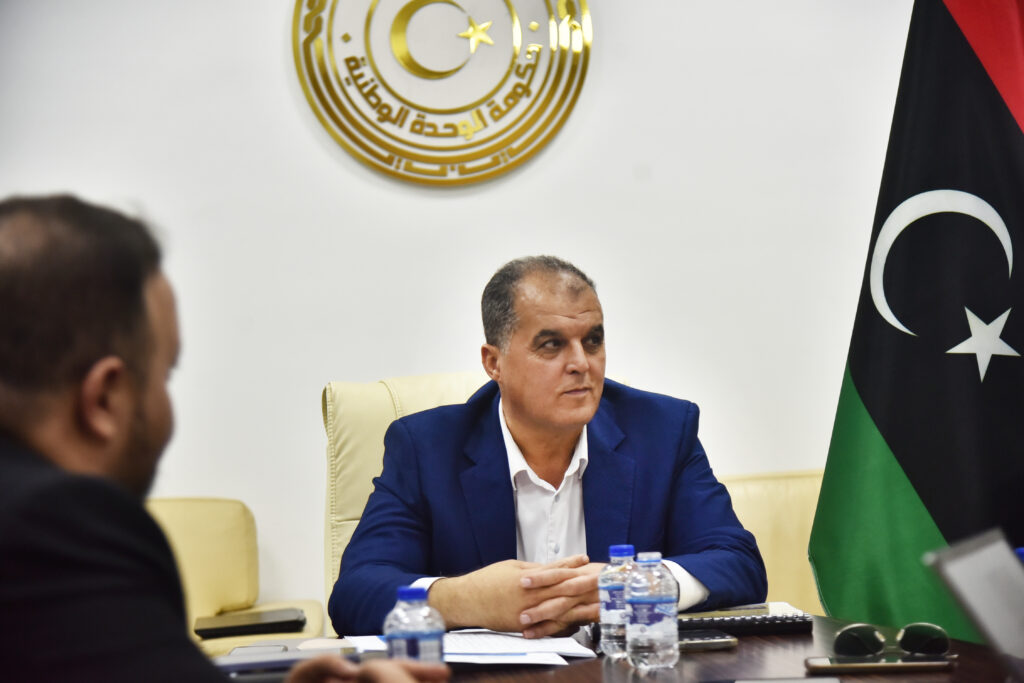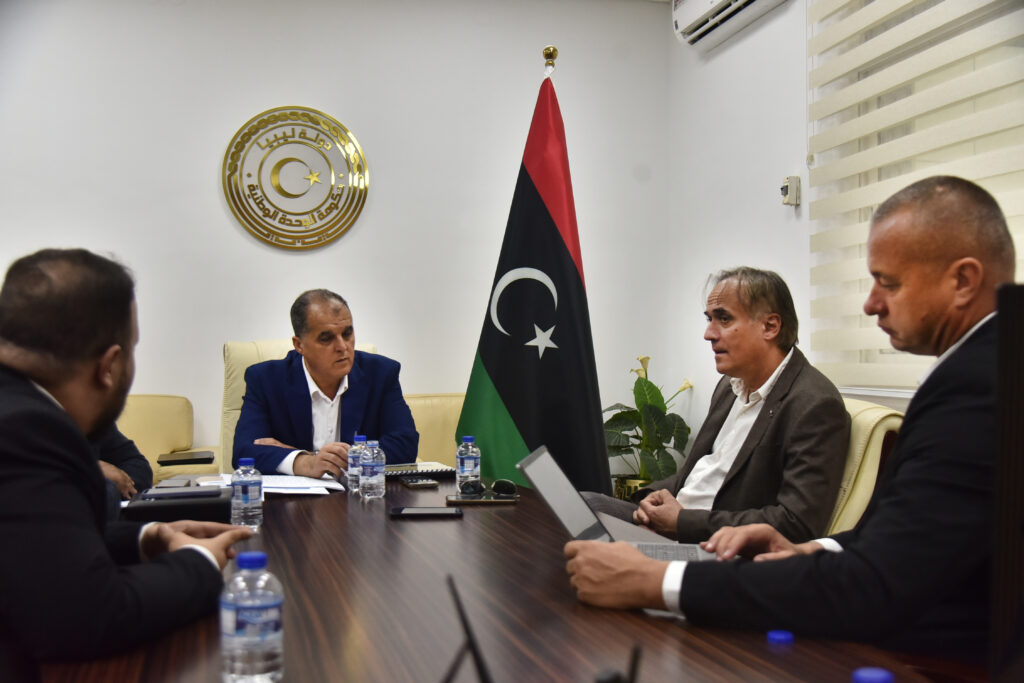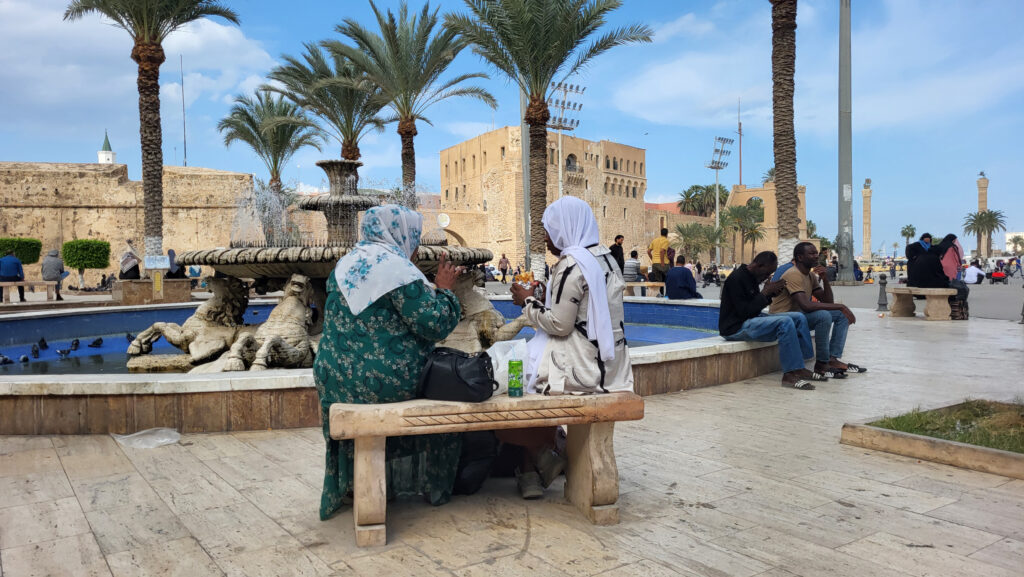Driving Libya’s Renewal Through Visionary Leadership and Strategic Development
 Interview by Žikica Milošević
Interview by Žikica Milošević
Libya has long been neglected or devastated by various sanctions and conflicts. The time has come for reconstruction, and a significant part of this responsibility falls to the Administrative Centers Development Authority. During our editorial team’s visit to Libya in November 2024, we had the great pleasure of speaking with Mr. Ibrahim Takit, the head of this institution, to discuss its crucial role in rebuilding the nation.
What is, in fact, The Head of the Administrative Centers Development Authority? We had The Direction for Rebuilding of the Country in 1999-2000, so are we discussing the same thing in Lybia? How many regional branches are there?
The centre designs the ideas and turns them into reality and fundamentals on the ground. Since the Government of National Unity started in 2021, we have started paying much attention to the very important sides: health care and education, which includes new stadiums, youth, and sports.
The Administrative Centers Development Authority was founded in 1989, and right now, we are in the process of building the administrative centres or branches. The main branch of the centre is in the Falah Tripoli; there are about 13 offices around Libya. The main centres are Tripoli, Misrata, Benghazi, and the northwest and western mountains. There are two main executive branches: the Supervising and Research Branches. And other branches like Supporting, Managing, Revising and Supervising how they work. The main work here is to supervise and ensure that the projects continue working through reconstruction or by creating and developing new routes. Regarding the existing hospitals, it’s about reconstruction, fixing them, and seeing what they need, and if we talk about new hospitals, it is about creating new institutes. We also cover the educational side, like schools.
We have prioritised education and healthcare, starting with rebuilding 450 halted school projects and delivering 25 primary healthcare units
Regarding construction, most of the work is to build schools in Libya, including the 1500 schools constructed by the UN. Our main object is to create new schools and reconstruct the old ones, but mainly to build new schools, like the 1500 schools that have already been built. Other aspects include youth and sports, such as founding new arenas and sports facilities. As well as some important sectors, like social projects, such as the buildings for social affairs, administrative offices, and buildings for the government. The Administrative Centers Development Authority is the vehicle that moves forward the ideas and plans for the governments.
 We come from Serbia, which went through terrible wars in the ’90s. The final thing was the bombing by the Americans and NATO in 1999 when the country was damaged. We know exactly what it means since we had the direction for the country’s reconstruction after that. We had to replace many bridges; we had to build a lot of railways and houses and everything. So, there is much work to be done in Libya after the events that happened in 2011. What are your priorities for the next two years? What are the most burning questions?
We come from Serbia, which went through terrible wars in the ’90s. The final thing was the bombing by the Americans and NATO in 1999 when the country was damaged. We know exactly what it means since we had the direction for the country’s reconstruction after that. We had to replace many bridges; we had to build a lot of railways and houses and everything. So, there is much work to be done in Libya after the events that happened in 2011. What are your priorities for the next two years? What are the most burning questions?
I am glad that I am talking to someone who has been through something similar and can understand. I want to emphasise two points other than what you have mentioned. In Libya, when the revolution happened in 2011, much infrastructure was destroyed, including many institutes and many buildings. And a lot of institutes and infrastructures have gone out of work. Since 2011 and between 2011 and 2018, all the projects were stopped altogether, complicating the matter even more. There was an increase in population without an increase in infrastructure, which made putting a plan even more complex.
So we set our priorities in the National Unity Government on many aspects, like water supply, founding infrastructures like roads, and reviving the educational system and health care. We started working on the public services beneath our centre, which are education and health care, along with some sports arenas and infrastructure related to sports and administrative buildings associated with the local authorities.
Since 2011, infrastructure projects have been completely halted, leaving us to manage growing populations without matching development
Give me some numbers, please.
In 2011, the educational system, when the revolution started, there were 450 schools under construction. All of them have stopped. So, our first step was to work on these schools and these projects. And we calculated how many more we needed besides those. We started working on the 413 that has been stopped. We also started working on another programme for 1,500 schools around Libya. The first step of it is 500 schools. To sum up, out of 416, we have finished 295 schools: 206 started working from the first step. This sums up the education side.
Regarding healthcare, there are about 50 hospitals. Sixteen started working, and the remaining are still being worked on step-by-step. Besides those, there is a new programme for 29 hospitals and around 19 compound clinics; 7 are active and working. There are primary healthcare units. We have delivered 25 of them. These are the two major branches that we paid attention to.
Regarding sports, we re-innovated and started working on three big primary projects: the main arena of Tripoli, an arena in Aziziyah city, and an arena in Misrata, plus 10 closed gymnasiums. Our target is to build 10 more arenas and 40 closed gymnasiums.
 Yes, idle youth is dangerous. They have to go to school and practice sports to be occupied by something creative. The nation’s health is the most important thing, so, understandably, it is your priority. There are substantial water deposits under the Sahara, and there were plans to construct water supplies underground so as not to depend on desalinisation.
Yes, idle youth is dangerous. They have to go to school and practice sports to be occupied by something creative. The nation’s health is the most important thing, so, understandably, it is your priority. There are substantial water deposits under the Sahara, and there were plans to construct water supplies underground so as not to depend on desalinisation.
It is not connected to my department, but I can give you a general idea about it. There is an institute that deals with synthetic man-made rivers. It’s the same department that took over the man-made rivers that used to run the old regime. It took the water from the southeast, the south, and the southwest of Libya through thousands of miles of pipelines and delivered it to all the cities, either on the coast or in the mountains that lack water.
Yesterday and today, we visited Homs and Misrata and saw a lot of traffic and new roads being built. But petrol is cheap, and many people have their own cars. Although there are only 7 million people in Libya, many cars exist. The traffic jams are massive. One of your priorities is widening the roads and making them better. Is it your responsibility to find ways to reduce the traffic jams and widen the roads?
It’s not in my area of responsibility, but the government has already started working on a new road network. It will be the duty of the Transportation Developing Center. They have a solid plan, and what you see on the road proves they are already working on it. We are studying and researching how to ease the traffic inside the cities, and this research will help us find a way to organise it. I’m sure you know that the traffic system is not random and has a purpose. But there are many cars because moving from one place to another is cheaper. This massive project requires a lot of setting, discussion, and taking experience from our neighbouring countries because they have higher gas prices.
Idle youth is dangerous—they must be engaged in education and sports to foster creativity and health
But Libya is rich in oil and gas, and the prices are stabilised. Also, there is a considerable demand, especially in Western Europe, after the disruption with Russian gas and the war in Ukraine. So you are in a good position to rebuild the country. Who are your main partners in that? Who are your main partners? Maybe some foreign companies, like companies from Serbia, used to do that. Because 30-40 years ago, our ambassador told us that during Yugoslavia, there were 40,000 Yugoslav workers and company personnel in Libya working. Everybody from my school had a friend whose parents were living in Libya, Algeria, or Iraq, working. So it was a massive place for our construction workers. We have a solid base for future cooperation.
Now Libya is very welcoming for all companies to come here, especially the ones that are coming now at the beginning since we already did the reconstruction. We have been running for two years, but we have special requirements, especially from companies for water supply and road construction and building schools and healthcare systems. We know that the labour from Serbia, either engineers or doctors in healthcare and builders, are very efficient. We’ve worked with them before, so the road for them is ready. We won’t need to convince people because they are already convinced. And they know how good they are and what they do.
Libya is ready to welcome companies, especially from Serbia, as we already know and trust their expertise in construction and healthcare
Big infrastructure projects are always under special spotlight because of potential corruption or something like that. Do you have somebody like Elon Musk, who will soon be in the United States, to control this kind of government spending on infrastructure because of potential corruption?
We have an institute that supervises this kind of spending, but we’re not at Trump’s level yet. We hope that they have good morals and that we will be able to have “1,000 Elon Musks.” Hopefully, people will realise that being honest and working is the only solution to giving your people a better life. We hope that this meeting will be a point for more communication in the future.
